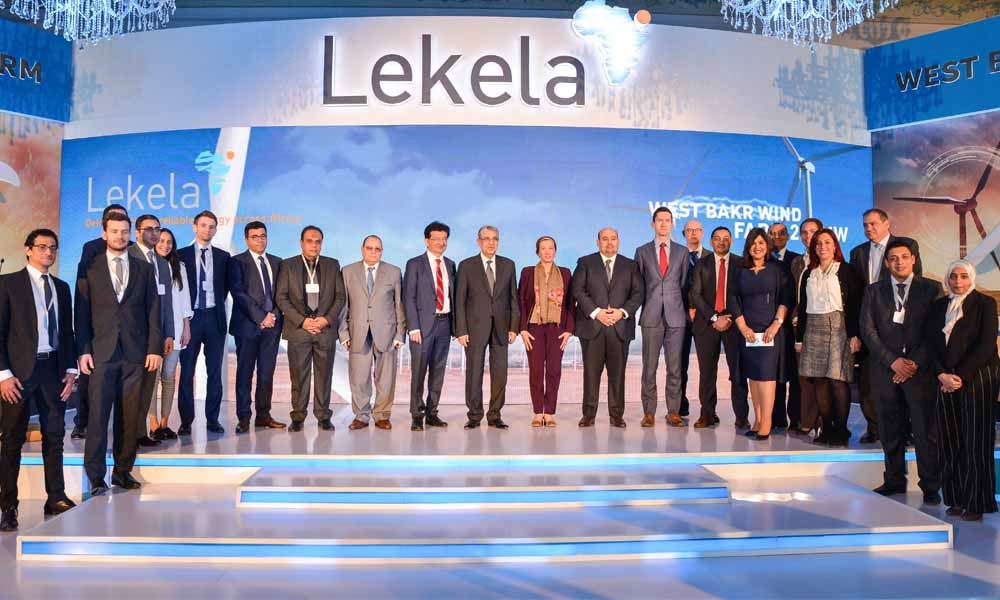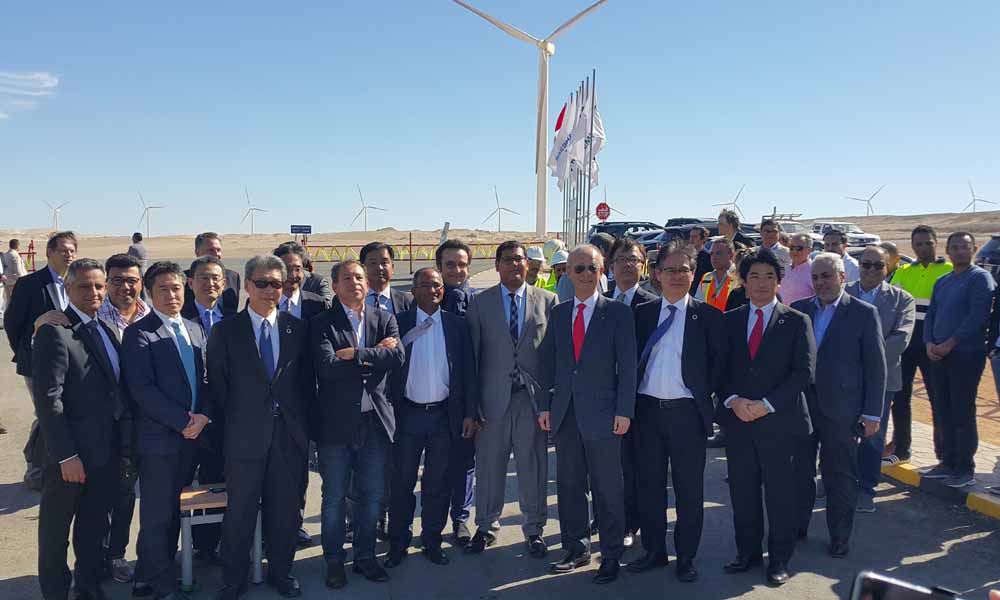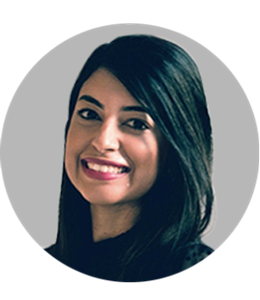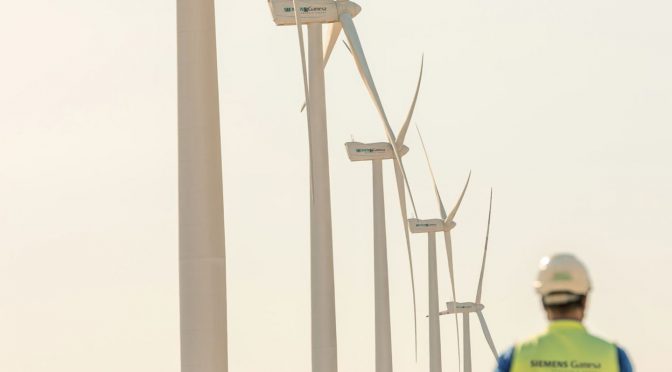To understand sustainable development, you need to look no further than Siemens Gamesa’s recent wind energy projects at Ras Ghareb, Egypt. From supporting health and education at the Ras Ghareb wind energy project, to providing employment and protecting biodiversity at the West Bakr wind farm, these projects are not just about providing clean electricity.
The project forms part of the ‘Partnerships with Purpose’ series of articles highlighting inspiring projects that Siemens Gamesa is working on with partners to tackle the climate crisis through the power of relationships, innovation, people and community.
Soaring demand for electricity, thanks to rapid industrial development and rising income levels, has steered Egypt towards alternate energy sources. The country is banking on renewables to meet 20% of its electricity needs by 2022. “It’s ambitious but achievable. Wind is among the most cost-competitive generation source in our country, and the Gulf of Suez, with wind speeds of 10.5 meters/second on average, is highly suitable for wind farms,” says Ayman Saad, Managing Director of Siemens Gamesa in Egypt.
Since 2005, the company has powered eight New and Renewable Energy Authority wind farms in the region. Last year, it partnered with Ras Ghareb Wind Energy Company S.A.E, an Independent Power Producer (IPP) to develop the first private wind farm at 262.5 MW. Ras Ghareb Wind Energy is a joint venture (JV) between France’s ENGIE, Japan’s Toyota Tsusho Corporation and Egypt’s Orascom Construction.
Siemens Gamesa is also currently helping Lekela Power, a JV between Ireland-based Mainstream Renewable Power and Actis, a London-headquartered investment firm, build a 250-MW West Bakr wind farm.
Both farms include 15-year service agreements, where Siemens Gamesa will maintain the wind turbines. These projects are part of the Egyptian government’s build-own-operate (BOO) framework and include Power Purchase Agreements with the Egyptian Energy Transmission Company, to supply to the national grid.

Rooting for sustainable growth “While this global-level collaboration with diverse players to bring Egypt closer to its clean energy goals is amazing, what’s even more heartening is the difference our social development and environmental initiatives make on the ground,” notes Ahmed Abu Elenin, Environmental and Social Manager, Siemens Gamesa Egypt.
Wind farms of this size need infrastructure and transmission equipment, and the manpower and machinery to put these in place. While the 50-plus subcontractors were local, more than 25% of the Ras Ghareb wind farm’s construction team were hired from the neighboring communities that comprise mainly migrants.
Siemens Gamesa used the project’s 15-year service agreement scope as an opportunity to develop the local value chain and works with local tower manufacturers and crane suppliers.
Community empowerment is another key development objective. “Since our project’s launch, we’ve engaged with the Ras Ghareb municipality on health and education, working closely with Siemens Gamesa,” notes Miklós Almásy, Chief Executive Officer at Ras Ghareb Wind Energy S.A.E. “In 2019, our teams renovated parts of the Ras Ghareb primary school. This year, we supplied medical devices to the municipality hospital, to avert a potential crisis in the wake of the pandemic. We appreciate Siemens Gamesa’s support and look forward to more such collaborations.”
Lekela is like-minded in its approach to delivering lasting impact on communities. The company’s CEO, Chris Antonopoulos, acknowledged this when the West Bakr wind farm contract was awarded to Siemens Gamesa last October. As part of Lekela’s Community Investment Plan, the company conducted an enterprise fair this January to present job opportunities to the local community. Up to 550 people are expected to work during the peak construction phase.
“This project marks our first collaboration with Siemens Gamesa in Egypt. As two organizations with shared values, we’re both aligned on the importance of investing in the local community by providing training and job opportunities,” explains Faisal Eissa, General Manager, Lekela Egypt. The companies are collaborating with the national Ministry of Environment to implement a plan that monitors the flight patterns of birds in the area, and controls operations during the migratory seasons throughout the project’s lifetime as per the EEAA guidelines.
“The shut-down on demand program is one of the first of its kind in Egypt, and follows stringent procedures to minimize the impact of the wind farm on migratory birds. This program is proof that we take environmental conservation very seriously and are committed to being in line with both local and international guidance,” Eissa adds.

Helping Egypt and Africa leapfrog fossil fuel generation With West Bakr wind farm, Siemens Gamesa’s installed capacity will grow to 1.5 GW, making Egypt one of the forerunners in Africa’s emerging renewable energy sector.
“To put things in perspective, our total deployment in Africa is 3.9 GW, which is more than 58% of the continent’s installed capacity. Egypt accounts for nearly one-third of this development with over 1 GW coming from the NREA projects,” says Marcel Cabral, Africa Area Director, Siemens Gamesa.
This extensive experience has proved valuable. In December 2019, the Ras Ghareb Wind Energy project was completed 45 days ahead of schedule. And now the team is going full throttle on the Lekela project to mitigate delays and logistical challenges posed by the pandemic. The first wind turbine has just arrived onsite, and the goal is to make the farm operational in 2021.
“It’s exhilarating to participate in this journey. As agents of change, we’re using our technology prowess and market leadership for the greater good, working with our partners to drive real transformation not just in Egypt, but across Africa,” adds Roberto Sabalza, Onshore CEO for South Europe & Africa, Siemens Gamesa.

Rajaa Hatim


